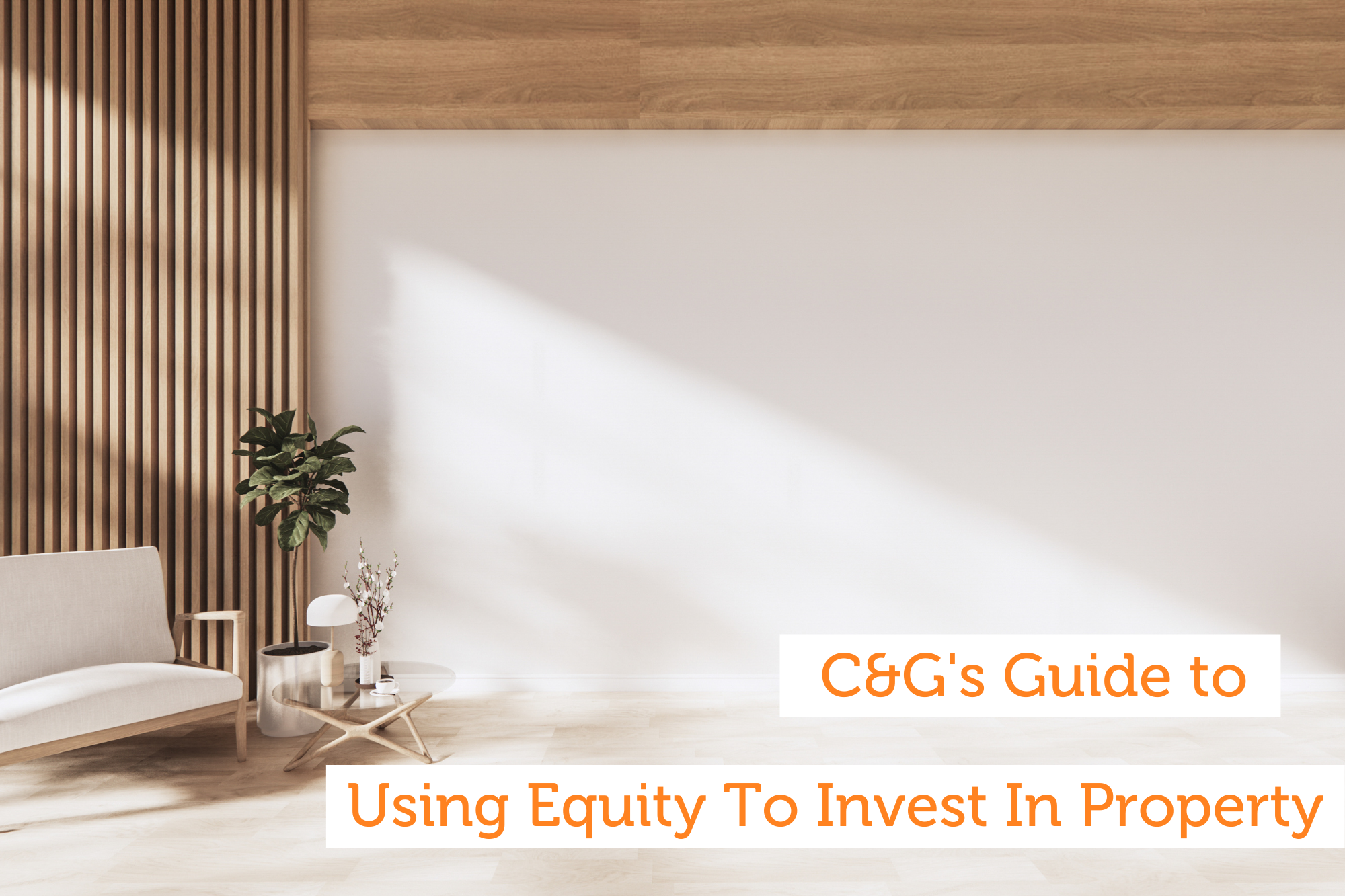C&G’s Guide To Using Equity To Invest In Property
If you’re a homeowner looking to buy an investment property or even build up a property portfolio, you could consider using the equity in your current home. Equity is a concept that can be tricky to wrap your head around at first, but once you do, you may find you’re able to leverage the equity in your home to invest in a second property.
In this C&G blog, we explain what equity is, how you can use it to invest in property, and what you should consider before doing so.
What is Equity?
Essentially, your equity in your home is how much of it you actually own. That is your home’s value, minus what you owe in your mortgage. For example, if your home is worth $750,000 and you owe $350,000 on your home loan, your equity is $400,000.
As you make repayments on your mortgage and reduce your loan amount, your equity will build up - and even more so if the market value of the property increases. So, if you’ve had your property for a few years, chances are you may have built up some equity that you may be able to tap into.
When it comes to taking out a loan against your equity, a lender will calculate what is known as your “usable equity”. Lenders will typically lend up to 20% of a home’s value without lenders' mortgage insurance (LMI). This means your usable equity is the total equity you own minus the 20% of the value of your home.
Using the scenario above as an example, your usable equity would be:
$400,000 – (20% x $750,000) = $400,000 – $150,000 = $250,000
In this situation, you may be able to borrow as much as $250,000 to buy an investment property. It is worth noting, however, that some lenders will allow you to borrow more, and they will also take into account factors such as your income, age, employment, family status, and additional debts.
Using Equity To Buy and Investment
There is a range of options available when it comes to leveraging your home’s equity to purchase more property, here’s a brief summary of a few loan structures that may work for you.
Home Loan Top-Up
This is one of the most common ways to borrow against equity and involves applying to increase your existing home loan limit to give you the funds, rather than saving for a cash deposit. The top-up amount is paid into your account as cash and you can use these funds to secure your investment property.
In this instance, you’ll need to be prepared to make the additional repayments on top of your existing loan term.
Supplementary Loan Account
If you don’t want to increase your current home loan balance, another option is to use your equity to establish an altogether new loan account, also known as a supplementary loan account. This option may allow you some more flexibility than simply drawing on the settings of your existing home loan. Options could include choosing a different repayment frequency, or type of interest rate.
Cross-Collateralisation
This option typically offers less flexibility than the previous loan structures and involves using the existing property as collateral and adding it to the new investment property loan to help with the purchase. In this case, you would end up with two loans: the original mortgage secured by your existing property, and the new mortgage secured by existing property and investment property.
The Pros and Cons
While leveraging on your home’s equity can be a good way to help you purchase an investment property, there are considerations that you should take into account before making the commitment.
Firstly, it is important to ensure that you can make the additional repayments on your loan, as you will now essentially be repaying two loans. Think about your cash flow and consider if you have access to backup funds in case things don’t go to plan. Remember that taking out a loan is always a risk, and may come with additional costs you didn’t previously consider, such as tax implications.
Before leveraging your equity to purchase an investment property, it pays to do your own research and discuss your options with a professional. This way, you’ll know you’re making a sound financial decision in your best interest!
